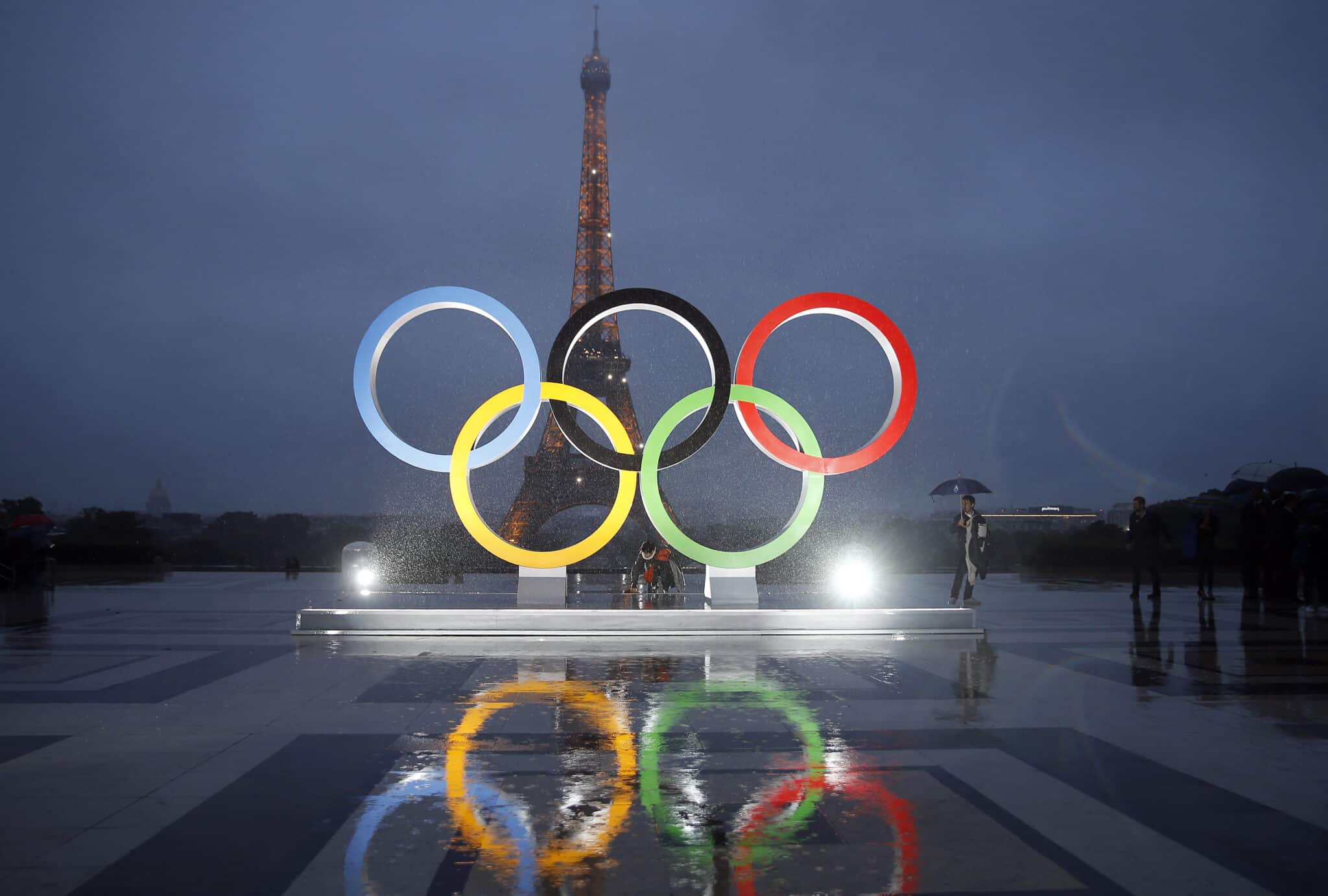How is Paris preparing for the 2024 Olympic Games?

By Nicky Helfgott / @NickyH3lfgott on Twitter
The Olympic Games are returning, and for the first time in eight years, the Games will be held with fans, the way it’s supposed to. For the 30th iteration of the games, Paris is acting as host for the first time in exactly one hundred years, after it hosted in 1900 and 1924. It’s no easy feat to host an Olympic Games. Incredible sports infrastructure is needed, as a massive marketing campaign, a big tourism push, space to host hundreds of thousands of people, and transport networks that aren’t overrun. As it goes, there aren’t many cities in the world with pre-existing infrastructure as good as Paris that could host an event of this scale. But there has still been lots of work which needed to be done. So how has Paris prepared itself for Les Jeux Olympiques 2024?
Paris is undergoing a green revolution on its way to hosting the most eco-friendly Games in history. Gone are the days in which cities will build massive stadiums and infrastructures only to find them unused after a month of sports. Paris is doing it differently. According to their website, “they believe that sport is a driving force for major changes. With the social and environmental challenges of today, we also believe that sport needs to be transformed. That is why, since the bid phase, Paris 2024 has embraced its responsibilities by offering a model for different Games, more sustainable and just as spectacular, and is mobilising all the possible dynamics to support this approach.”
Introducing the Olympic Aquatics Center!
— NBC Olympics & Paralympics (@NBCOlympics) April 4, 2024
This eco-friendly venue will host artistic swimming, diving and water polo at the #ParisOlympics. pic.twitter.com/Ti7bx7d75g
For starters, the opening ceremony is going to be like nothing ever seen before. The parade of athletes, typically held within the confines of a stadium, will take on a new guise as it gracefully navigates the iconic Seine River. Picture this: boats adorned with the colours and emblems of each national delegation will carry the 10,500 athletes, providing television and online viewers with an intimate, up-close look at the participants as they embark on their Olympic journey.
The spectacle will unfold along a 6-kilometer route, winding from east to west through the heart of Paris, the epicenter of the Games. This unconventional setting will transform the city into a sprawling stage, where athletes from across the globe will showcase their sporting prowess over the course of the following 16 days. As the parade reaches its crescendo in front of the Trocadéro, the scene will shift to accommodate the remaining elements of the Olympic protocol and final shows, culminating in a grand finale against the backdrop of this iconic landmark.
What sets this opening ceremony apart is its accessibility and inclusivity. In a historic first, the ceremony will be open to a vast audience, with no admission fee for the majority of spectators. While some areas will require tickets, hundreds of thousands of spectators will still be able to partake in the festivities along the banks of the Seine. To ensure everyone can immerse themselves in the magic of the moment, eighty giant screens and strategically placed speakers will transmit the sights and sounds of the ceremony throughout the French capital. From local residents to visitors from across France and beyond, all will be invited to witness history in the making as Paris welcomes the world to the largest opening ceremony in the history of the Olympic Games.
As opposed to building new structures, the vast majority of the events will be held in existing facilities such as the Stade de France, originally built for the 1998 World Cup, or in temporary venues in the city center, near Paris’ notable landmarks. Beach volleyball will take place in front of the Eiffel Tower on the Champ de Mars and BMX freestyle and skateboarding is to be held in the Place de la Concorde.

This has all been a part of Paris Mayor Anne Hidalgo’s commitment to revitalising Paris into a more sustainable, inclusive, and livable city. Her ambitious redevelopment initiatives have reshaped the urban landscape, emphasising pedestrian-friendly streets, green spaces, and improved transportation networks. These efforts not only enhance the quality of life for Parisians but also lay the groundwork for hosting major international events such as the Olympic Games.
These Games have had a relatively modest budget by recent standards, at about €7bn. By contrast, London’s 2012 Games cost around €11m, and that was 12 years ago. Crucially, in Paris, 80% of the investment for the event has been focused on less developed areas in the West of Paris and the two key construction projects – the Olympic Village and the aquatics centre – have been built there.
Happy 36th birthday to Usain Bolt! The Jamaican sprinter will forever be the
— 365Scores (@365Scores) August 21, 2022on the track! @usainbolt set the Olympic record in the 2012 London 100m final with a 9.63 time! pic.twitter.com/VO8KSBsUuV
The Olympic Village is a beautiful, modern accommodation in Saint-Denis with the capacity to host the 15,000 athletes competing in the Games. After August, it’s going to be converted into modernised social housing with a capacity for 6,000 people, a real boost for the people of that area.
As for the Aquatics Centre, it’s the only new permanent structure being built for the Olympics. Its configuration will be modular: it will be able to switch from a 5,000-seat venue during the Games to a 2,500-seat facility to host neighborhood events afterward.
Sticking with a common theme of the 2024 Games, the Aquatics Centre will be low-carbon and all the building materials will be bio-based. Its timber structure and roof frame are thought to blend seamlessly into the surrounding greenery. With a 5,000 square meter roof covered with electricity-generating panels, it will be one of France’s largest urban solar farms and supply all the energy that the Centre needs. Exciting.
France's three over-23 players for the Olympic Games could be Antoine Griezmann, Olivier Giroud and Kylian Mbappe!#Giroud #Mbappe #Griezmann #France #Olympics #OlympicGames #Paris2024 #365Scores pic.twitter.com/ERjGWSIqFM
— 365Scores (@365Scores) March 13, 2024
Another interesting development of the Games is the medals that have been created. The organisers of the Games called on the quintessential Parisien jewelry house, Chaumet, to devise the design of its medals.
Each Olympic and Paralympic medal has been crafted with a piece of original iron from the Eiffel Tower, the most classic landmark of Paris. Constructed in the 1800s, it has since been renovated. Certain elements have been permanently removed and conserved in this process. For the Paris 2024 Games, the medals are allowing these genuine pieces of Parisian and French history to find glory once again.
The sun will be shining on a Green Paris come August, as this shapes up to be one of the most exciting Olympic Games in history!
Keep up with all the latest Olympic Games 2024 news on the 365Scores website and app!




